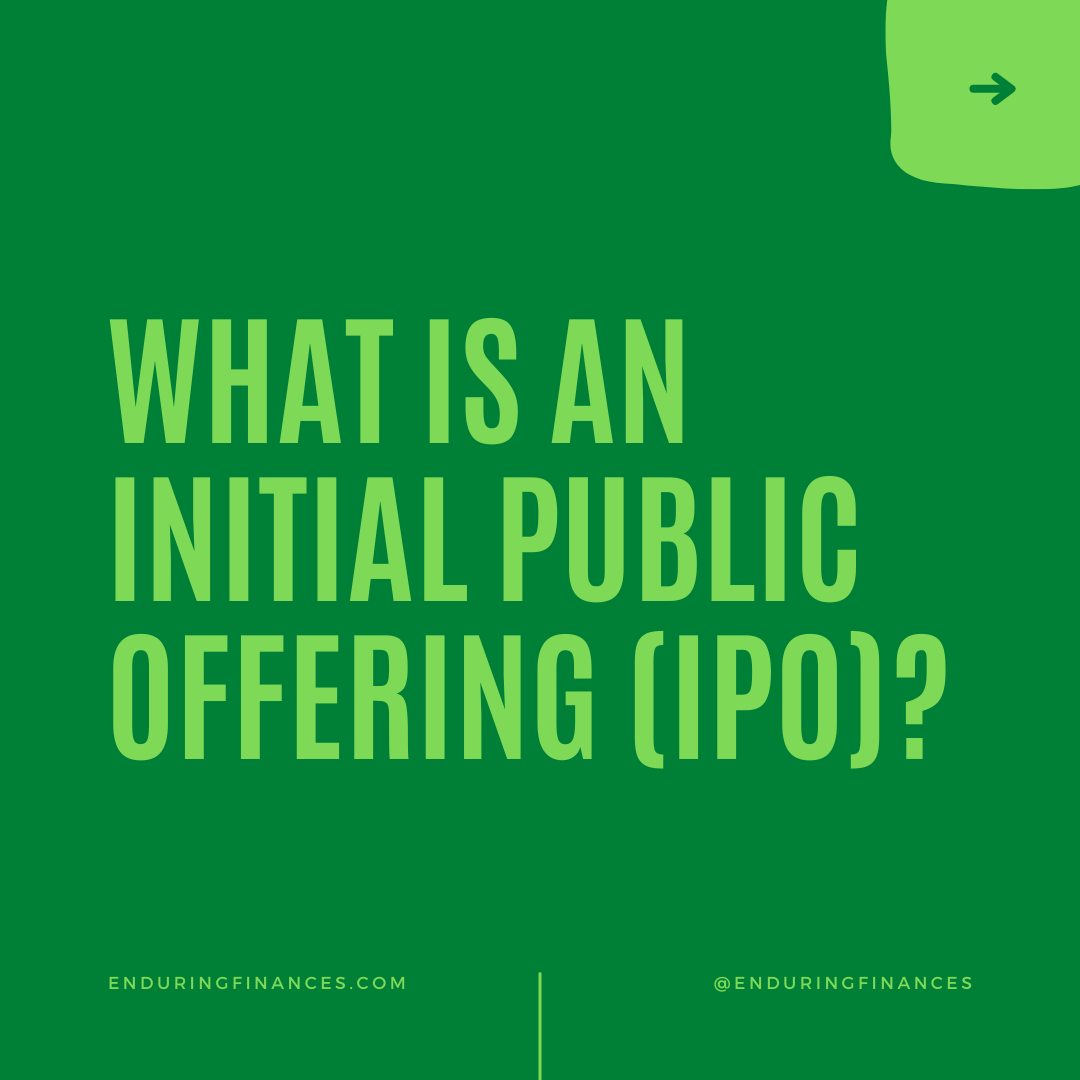An IPO is when a company offers shares of stock to the general public for the first time. Remember, think of the company as a building made out of bricks. When you invest in the company, you are essentially buying a brick in their wall. With an IPO, you and your neighbors haven’t been able to buy a brick. Now, you will have the ability to invest in the company and own your own bricks.
Why do private companies go public?
Think of it like a small mom and pop’s store in your neighborhood. The family has been building the business from the ground up. Now, they want to open additional stores in the neighboring towns, but they don’t have enough cash on hand to front the expansion. If they were to open the door to investors from around the country, they could generate enough money to expand their business and bring more jobs to the local area. It’s just on a larger scale with a company typically valued at around a billion dollars!
An IPO is a way for companies to make a lot of capital very quickly. And a company receives a lot of media attention leading up to an IPO. This can be really good for a business to increase sales and followers! Not all IPOs are used to generate capital and increase the company’s audience though. In a lot of instances, initial founders and those investing privately in the company are looking to cash out on their ownership or investment returns and use the money earned for other things like retirement or new ventures.
Are IPOs risky investments?
Like any investment, IPOs come with risk. Typically, when an IPO goes live and the stock market opens on that first day of trading, the shares of stock are at a slightly discounted price to help get sales going. The market can be very hot as investors are trying to get shares at a great value before the stock price rises too high. This can cause a lot of volatility in the stock’s price within the first few hours and days of trading as people are buying and selling to make short term profits. Kind of like flipping a property once the value increases a little bit.
Here is another reason why those first 90 days are so unpredictable… Remember those angel investors who have been investing since the company’s inception? A lot of those investors hold equity in the company and are “grandfathered in” with a specified number of shares of the company’s stock. The SEC requires a mandatory 90-day lock-up period where they cannot sell their shares. Sometimes the lockup period can be a lot longer sometimes over a year but, it just depends. But, once that lock-up period ends, you could see a huge liquidation of shares making the stock price plummet.
Should you invest in an IPO?
Short-term trades in the first few months of an IPO are extremely risky. That high risk can lead to high returns or crushing loses. The traditional fundamental of evaluating stocks don’t always apply to IPOs and it can be difficult to manage your emotions while the stock price is jumping up and down rapidly. If you are trying to do a short-term flip and miss the deal you could get caught holding the bag and lose a lot of money! A good rule of thump with all is investing is don’t risk what you can’t afford to lose.
When in doubt about a position, don’t jump on the bandwagon. If you want to invest in the company for a longtime, like 10 to 15 years, you may want to hold off for a few months or even a year before purchasing any shares. This will allow time for the market to calm down and show how the company is handling the adjustment of going public.
© EuduringFinances, 2022. All Rights Reserved.
Resources:
U.S. Securities and Exchange Commission. “Revisions to Rules 144 and 145: A Small Entity Compliance Guide.” https://www.sec.gov/info/smallbus/secg/rules144-145-secg.htm, Accessed Apr. 27, 2022.
Related Posts –




